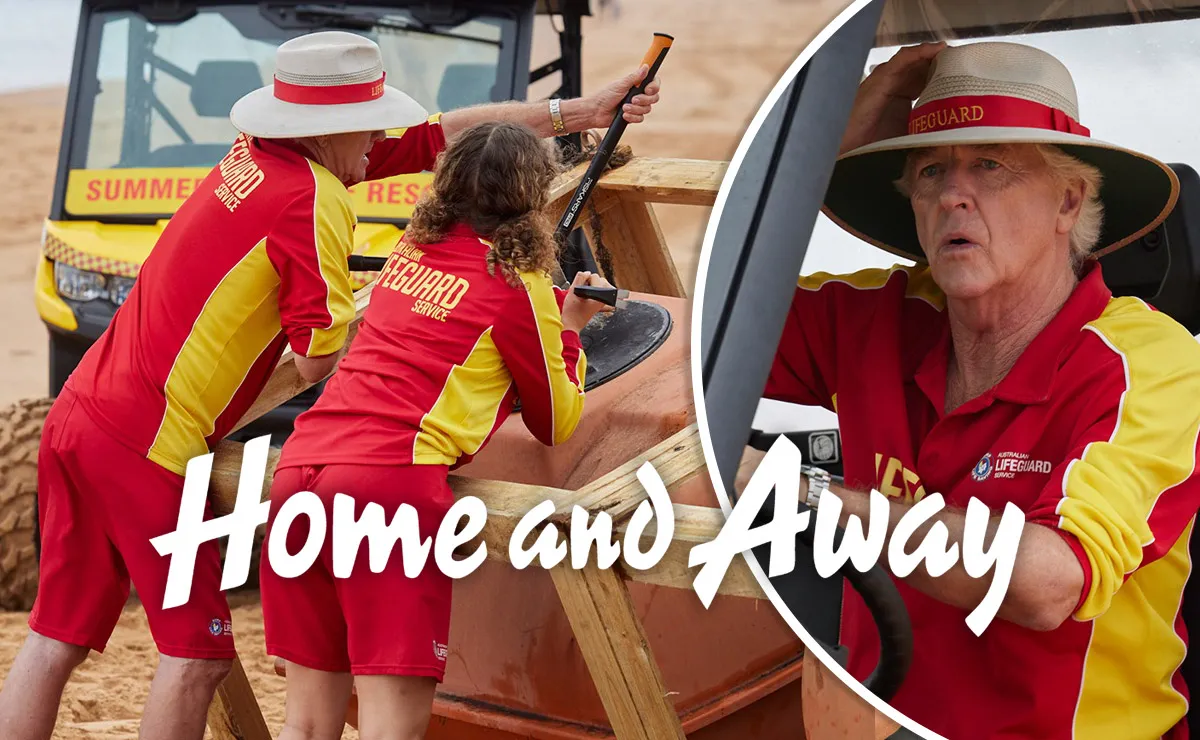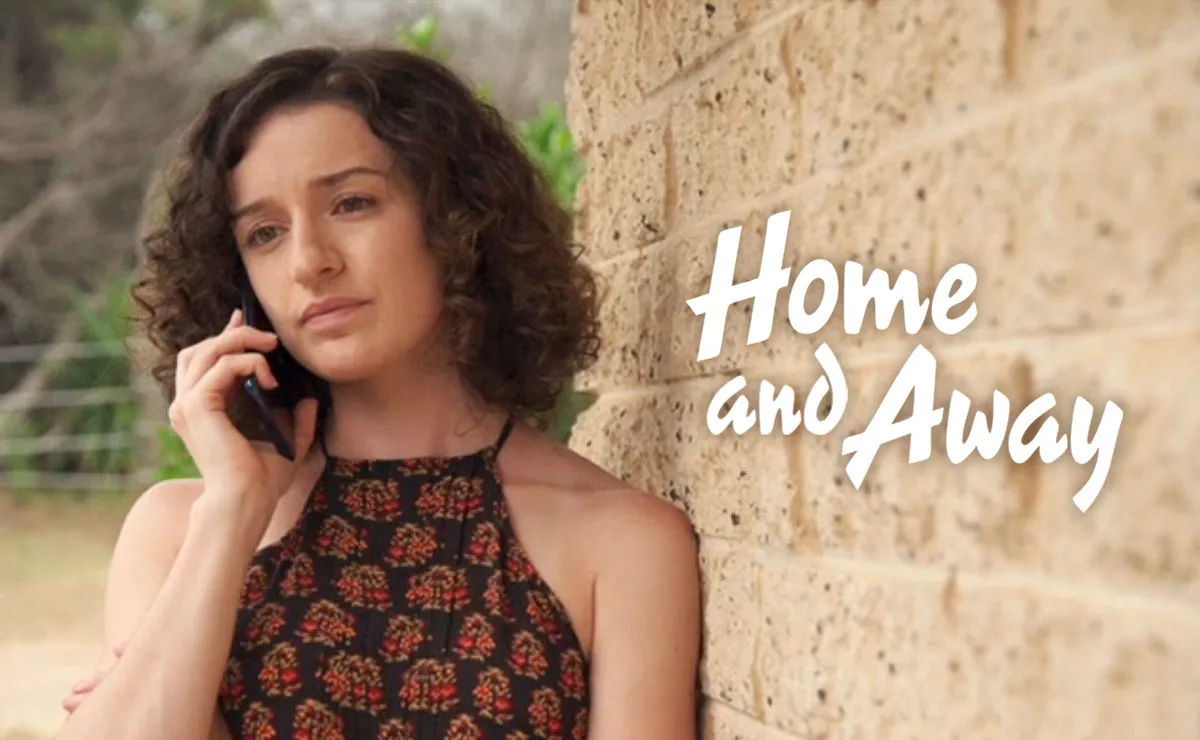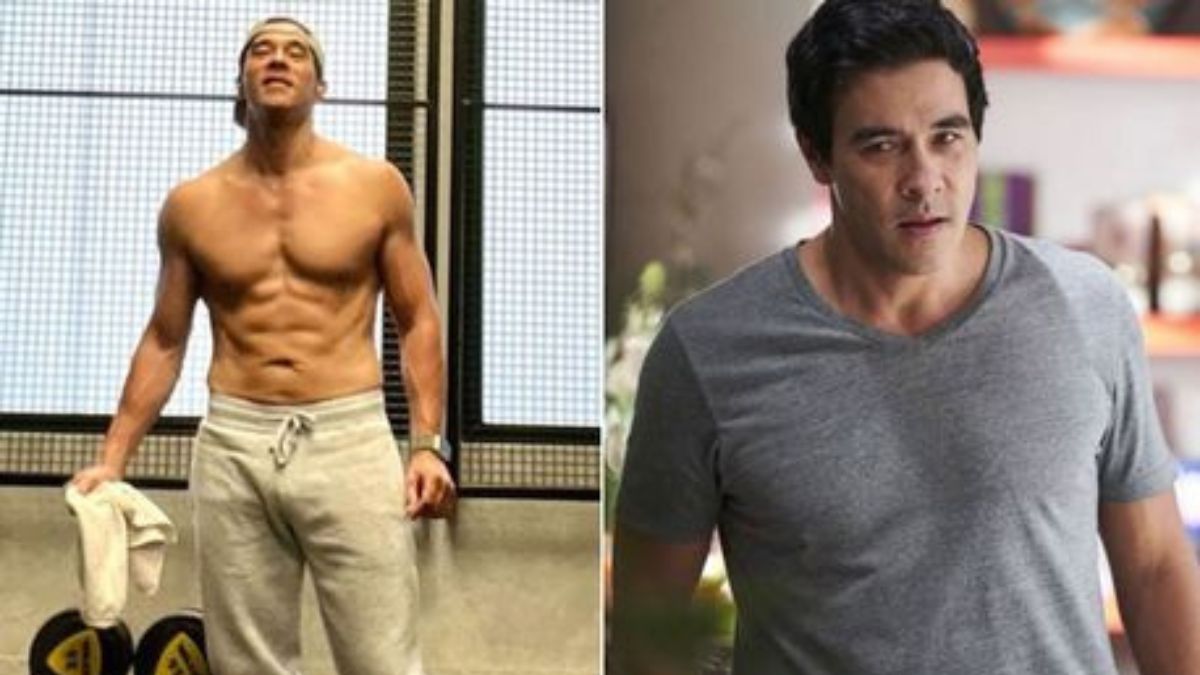Ethan Browne, a star of Home and Away, debuted in Summer Bay in 2020 as Tane Parata and soon won over fans.
The on-screen Mori whnau of the Kiwi actor was the first typical indigenous family to appear on the show, a distinction that Ethan hasn’t taken lightly.

He spoke candidly to Yahoo Lifestyle about his personal relationship to the drama, the “pressure” of appropriately portraying Mori culture, and the reasons his daughter doesn’t watch the serial opera.
On the show, Ari Parata (Rob Kipa-Williamscharacter )’s passed away earlier this year, leaving behind his nephew Nikau Parata (Kawakawa Fox-Reo) and younger brother Ethan, who is played by Ethan.
Ari’s heartfelt farewell shook Australia, and the funeral episode of the show earned script executive and writer Louise Bowes a nomination for an Australian Writers Guild Award.

A lot of pressure is present.
A cultural expert was hired because the producers wished to treat the tangihanga or tangi (a Maori funeral) with dignity.
The cultural counsellor provided the writers with direction, and they also drew from Ethan and Kawakawa’s personal tangi experience.
“It was crucial to convey it accurately. We wanted to have every aspect right, right down to the type of clothing we would wear and having water available at the entrance for hand washing, Ethan recalls. It was challenging since there was so much pressure to complete the task correctly.
A personal link to one of the songs performed by the family at Ari’s on-screen tangi was also disclosed by the celebrity.
I had the good fortune to sing one of my uncle’s songs right as he had died away. It’s a lovely Mori song. It was quite appropriate.
In addition, tangi is significant in Mori culture, so it touched home…quite a bit, he says.
“Really special”
Ethan and Kawakawa had another sad moment to shoot before Ari left the soap.
Ethan’s character taught his on-screen nephew the Taiaha as he prepared to take over as the family’s head.
Ethan tells us that the two spent hours practising the Taiaha, a traditional Mori weapon, before the scene was filmed.
He continues, “We began working with Kawa’s cousin who teaches Taiaha. “We began communicating via Zoom with our cultural advisor as a result of the [Covid] lockdowns. Due to the fact that I was never truly taught Taiaha growing up, I started watching YouTube videos.
The stirring scene won over viewers, who praised the actors’ moving performances.
“Showcasing the Mori culture’s warrior side was fantastic. He says, “It was incredibly special to represent.

“Didn’t want those cliches”
The performers didn’t want to be limited to a cliché, according to Ethan, even if the family was initially portrayed as “bad boys” in Summer Bay.
He acknowledges that the stereotype of the criminal being a person of colour is still prevalent and says, “We wanted to play off of that.”
The authors concurred that wasn’t their objective at all. Everything revolved around altering our course and going from being the bad guy to being the good man.
He claims that the characters’ increased depth was “essential” and that the performers are fortunate to communicate with the writers.
The actor praises the cast and crew for the little touches that help to maintain a realistic vibe throughout.
You’ll never see the Parata family inside the house with shoes on.
“That’s simply how we were raised. It’s out of respect that we’re not permitted to wear shoes inside the house, Ethan explains.
He chuckles, “I recall getting a little smack on the hand if I wore shoes in my grandmother’s house.

Doors were “opened for diversity”
Ethan hopes that the addition of a Mori family to Home and Away will lead to the continued telling of varied tales on television.
There is obviously a need for these kinds of tales given the popularity of Australian productions like Netflix’s Heartbreak High remake.
“I believe that Australia is a very varied country; there are many different cultures here…
The arrival of a Mori family was only a question of time. I believe it was a logical move to be made,” he claims.
“It [has] hopefully opened avenues for diversity. I certainly hope so, as I believe it has.
It’s not unexpected that his friends and relatives in Wairoa have been supportive given how popular New Zealand is for Home and Away.
It’s different in various ways. I believe that’s a good thing because they can relate to it a little more since they can see characters from their culture on film.
Aaylah, his 14-year-old daughter, is the sole exception.
“My daughter no longer truly watches it. He chuckles, “I guess she likes to watch other things, like Stranger Things or something.
Which is great. Most likely too many kisses; it might be strange for her.








